Some
highlights of the Rocky
Mountains
seen on a SIFT field trip
Each year
the CSPG
sponsors one student from every Geology program in Canada to attend the
SIFT
(Student-Industry Field Trip). This is a sampling of what they see
on
the
4-day field trip through the Rockies.
[Click on images
for larger
versions.]
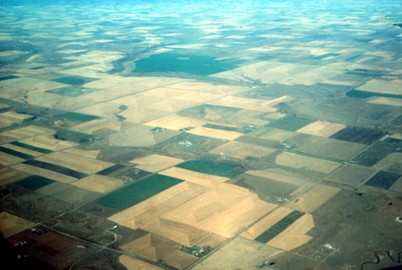 |
Flying out to Calgary, the prairies are a checkerboard of fields and deep valleys. |
| The first view of the Rockies is often from the plane as it comes into Calgary. Here the mountain front by the Bow Valley shows off Mount Yamnuska and the McConnell Thrust. |
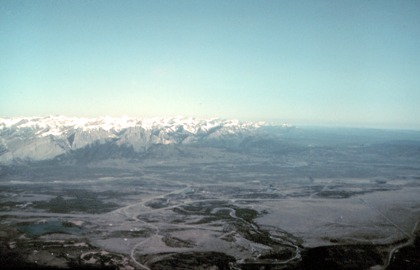 |
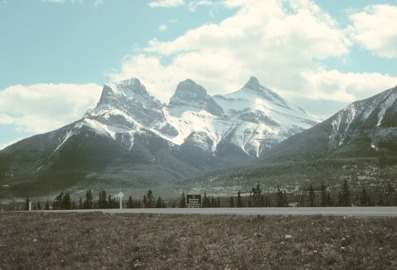 |
The Three Sisters demonstrate the effect of a syncline (capped by the east - left - sister), an anticline (valley between east and central sister) and a thrust fault (valley between the central and west - right - sister). |
| The Bow Valley and Castle Mountain behind. Castle Mountain is a klippe of Cambrian rocks thrust to the east (right in this view) over younger rocks. |
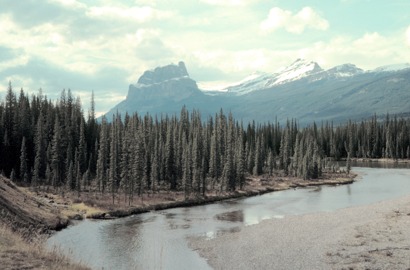 |
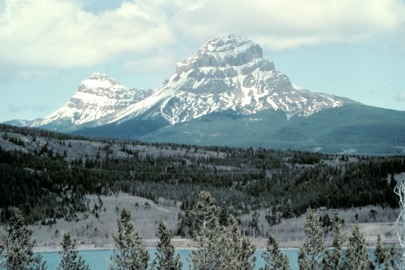 |
The Crowsnest Mountain is formed by an open syncline. |
| Farther north, along the David Thompson Highway, spectacular steeply dipping dip-slope mountains are part of the Sawback Range. |
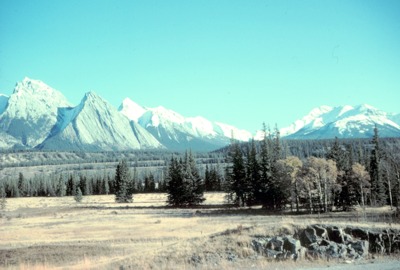 |
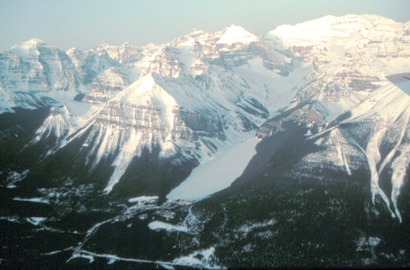 |
An areal view of Lake Louise (still frozen) and the nearly horizontally Cambrian strata. |
| The Takakkaw Falls flow from the Daly Glacier over a 300 m cliff of Cambrian limestone capped by harder dolomite layer. |
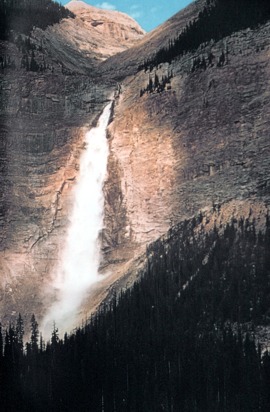
|
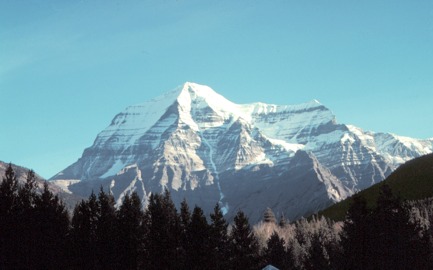 |
The highest mountain in the Rockies is Mt. Robson, composed of Precambrian quartzite. |
|
West of the Rockies lies the Southern Rocky Mountain Trench - formed by easily eroded Purcell Thrust. Beyond this (to the right) lies the Purcell, Selkirk and Monashee Mountains, part of the core zone of the Cordillera.
|
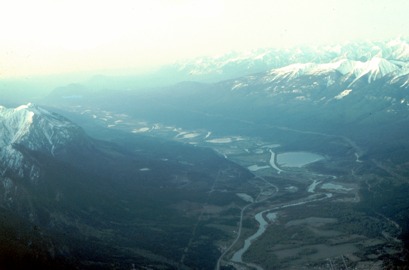 |
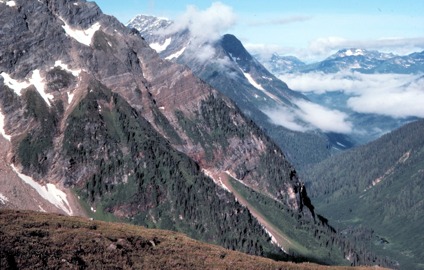 |
The highest metamorphic grades are in the Monashee Mountains. Here, at the headwaters of Adams River, folded marble and migmatite can be seen. |
| The oldest rocks in the Monashees are Precambrian Shield basement rocks, brought up to the surface by the Purcell Thrust - here the Malton Gneiss. |
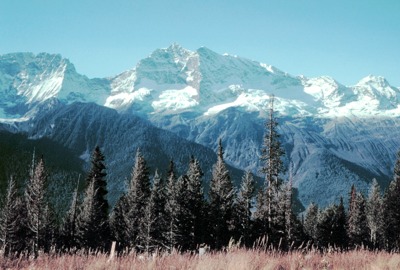 |












